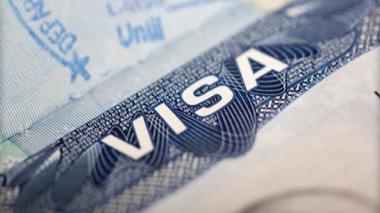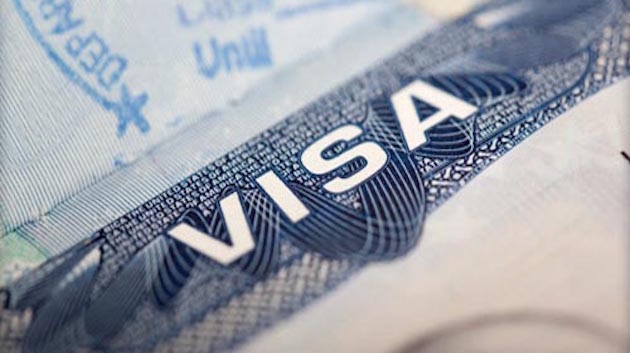
The anti-immigrant phobias surging through Europe and North America have so far had little practical effect on classical music organizations, although there are notable exceptions — one of Britain’s most beloved orchestras, The European Union Baroque Orchestra, is presenting its last U.K. concert on May 19 and will then move to Antwerp. The orchestras’ general manager, Emma Wilkinson, said recently, in the context of post-Brexit Europe: “I do worry that European orchestras will not be inviting talented British musicians to work with them. It will just be too bureaucratically difficult.”
On the question of whether the orchestra might return to perform in the future she added, “That’s the problem with the uncertainty around this whole issue. We just don’t know.”
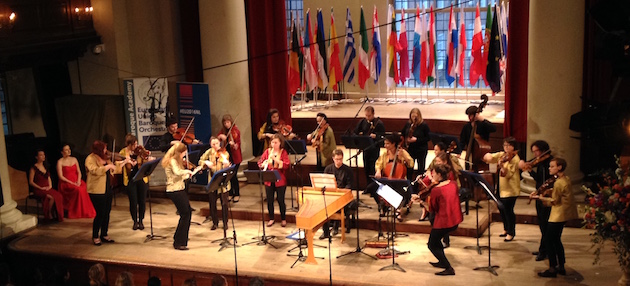
In America, where the corollary to Brexit is President Trump’s immigration policy, the future is equally fickle. There are no reports of cancelled festivals or concerts because of the president’s original executive order restricting immigration from some Middle Eastern and African countries, signed on January 27 and then undone by the Ninth Circuit Court of Appeals. The lasting effect of the loosened, new ban signed on March 6, remains to be seen.
At the same time, Facebook is filled with anecdotes about individuals and groups who have suffered immigration problems for years. Indeed, some insist things were not much better under President Obama; visa fees have risen steadily and the process has become more and more onerous.
Under Trump’s original executive order, it was not clear whether people from the listed countries who were living in the U.S. and then left might be able to return even if their visa allowed for international travel. Now, that problem has been resolved. Citizens and visa holders are free to come and go.

Valentina Simi, San Francisco Opera’s Artists Services Coordinator and Assistant to the Music Director, told us that she doesn’t know of any artists who have put off travel plans to the U.S. because of the visa application process, and in her opinion the process isn’t “too difficult.” But she acknowledged, “We are facing some new, unpredictable delays with regards to the time it takes for the USCIS (U.S. Citizenship and Immigration Services) to adjudicate petitions.” But these delays are not necessarily related to uncertainty around the recent executive orders. She added that “standard processing has always been unpredictable especially after 9/11”.
The 0.012 Percent Solution
Although the tangible effects are mostly speculative, there is growing concern — not just about immigration but also the funding threats to the NEA and NEH. It appears to be 1939 for the arts, and the concern extends from the Chamber Music Society of Lincoln Center to the Seattle Symphony.
A statement from The League of American Orchestras noted, somewhat defensively, that “with each concert U.S. orchestras perform here and abroad, as many as 100 musicians from diverse traditions, faiths, and political perspectives play in unison in the shared pursuit of artistic expression …. In a time of unprecedented divisions in our country, intentionally listening to the full spectrum of voices is key to our nation’s progress.”
In the Bay Area, local orchestras say the threat of a ban has had no effect. Yet.
“We have only used Bay Area musicians,” said Nick Burdick of the Fremont Symphony, “so it hasn't had a direct effect on us yet, but it certainly limits the scope of possibilities that we can consider. It will be a shame to see decades of international relationship-building and camaraderie come to an end out of misplaced fears.”

“I'm not aware of any effect Trump's policies have had on my orchestra,’ said Eric Kujawsky, director of the Redwood Symphony, “other than to throw most of the members' emotional states into turmoil!”
“I don't book international artists because their fees and travel costs are beyond our budget,” wrote Jane Hill in an email. She’s the executive director of the Eureka Symphony. “But that may all be a moot point. Once Trump has dismantled the NEA and the NEH, these performing arts org's will die anyway.”
Total appropriations for the National Endowment for the Arts in fiscal 2016 were $148 million, or 0.012 percent of the federal budget. Since 2010, the NEA budget has decreased by 12 percent. The highest NEA appropriation in its 50-year history was in 1992 when it reached $176 million.
“Never Let a Good Crisis Go to Waste”
“The amount is peanuts,” Bill Stensrud told us. “In the federal government, the NEA budget is a rounding error; cutting it won’t save a nickel. The truth is a single wealthy billionaire could step in and create a private NEA.”
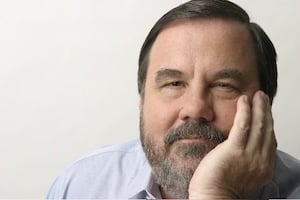
Bill Stensrud is a long time venture capitalist, arts philanthropist, and the head of InstantEncore, a company that provides mobile solutions to performing arts organizations. He was also once president of the San Diego Opera. Referring to the specter of a “zeroed out” NEA, he said he sees no way to stop the move politically, and added that frankly he has mixed feelings about government subsidies to the arts.
“Think about it. Why should the government support the likes of the San Francisco Symphony, with its huge budget? My take is that it shouldn’t. If an organization like that can’t survive on its own budget then perhaps that says something about its viability. From a philosophical standpoint, there’s validity in the position that the large arts organizations should stand on their own two feet.”
“The fact is,” he went on, “the NEA will be missed most not by the large presenting organizations but by small, community arts efforts that don’t have a moneyed donor base and where that money is often seed money anyway.”
Rahm Emanuel used to say ‘never let a good crisis go to waste’ (Winston Churchill and Machiavelli said it before him) and I think that’s true here. This may be a great opportunity for arts organizations to say to donors, ‘you need to step up in this crisis.’ Remember that all good fundraising efforts need to be built around something and this, you can argue, is a matter of survival.
Mr. Stensrud believes that President Trump’s animus toward the NEA grows out of his commitment to voters to disempower and vanquish the “ruling elites,” which include consumers of the arts as well as, often, the artists themselves. “You can argue that government has no business subsidizing the elites, but of course art is consumed by everybody. That’s what’s wrong with all this. But cutting the NEA is not about government savings, it’s about symbolism.”
As a former staffer from the Heritage Foundation told The Hill on the eve of President Trump’s inauguration, “targeting waste like the National Endowment for the Arts and National Endowment for the Humanities would be a good first step in showing that the Trump Administration is serious about radically reforming the federal budget."
The Evola Virus
Animus toward the arts has long seemed ingrained in conservative doctrine, although less antipathy against artistic expression than opposition to the idea of yet another government entitlement, another elite, and also perhaps a deeply held conviction that artists are not from the same mold as the Puritans, the Founders, or Knut Rockne. Of course, Ronald Reagan is the exception.
But with Trump, you wonder whether this is something different. Is his animus personal or professional? Always personal you assume. Or is he caught in a grand folie-a-deux, with his believers, those Rust Belt voters, sometimes portrayed as the Manchurian army of hate-radio.
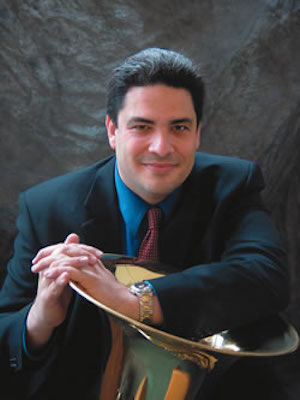
David Stull, president of the San Francisco Conservatory of Music, grew up in Ohio, went to Oberlin College (class of ’89) and for nine years served as Oberlin’s dean. “I spent many years in Ohio,” he said the other day, “and I know some of these communities that ultimately voted for Donald Trump. I can tell you that, however they voted, people genuinely love the arts and support the arts, and more than anything want their children to have access to the arts. I don’t know where these attacks come from but I don’t think they’re driven by voters.”
Stull added that while the NEA is a mere token, at least the government is doing that much and anything less further undermines the real significance of an arts education — to prepare students for a modern economy. “I don’t see it in line ethically or economically,” said Stull. “If we eliminate the opportunity to help students to engage in creative work, especially as musicians, then we’re not providing a forum for imagination and innovation.”
The San Francisco Conservatory will be directly affected by an immigration ban; roughly 30 percent of the conservatory population, including both students and faculty, comes from abroad. “So far it’s not been a major problem,” said Stull, “but without question there’s been real fear around this issue, and we are doing everything we can to insure a sense that this conservatory is a safe place. We’re fortunate to be a small school. I have great concern for larger institutions where students may not have the same level of support.”
If the new administration’s animosity is not driven by voters, then perhaps it is the influence of Stephen Bannon — that rough-faced Zvengali whose own Zvengali is Julius Evola (1898–1974), the mid-20th-century Italian philosopher and “traditionalist” who idolized Hitler, was admired by Mussolini, and once wrote an article titled “Woman as Thing.” Evola, who loathed the bourgeoisie, also held strong views about music, classic and otherwise, and was particularly critical of jazz, which he said was inspired by “the patrimony οf the lower and more exotic races, the Negroes and mulattoes of ... the tropical and subtropical zones.”
On WHYY’s Fresh Air, Terry Gross recently interviewed journalist and academic Emily Bazelon, the Truman Capote Fellow for Creative Writing and Law at Yale Law School who talked about Bannon’s and U.S. Attorney General Jeff Sessions’ kindred view of a cultural threat to America: “So one of the things Bannon said before the election was that he was worried that so many of the CEOs in Silicon Valley were from South Asia or from Asia. And then he said a country is more than an economy, we’re a civic society. That seems to imply that if we have too many minorities and foreign-born people here, we're not going to have the same kind of civic society that we've had in the past, that there is a kind of damage or fraying that will be happening. And that's a …very distinct idea of why you want to prevent immigration.”
One wonders at the role of the Arts in this “new” civic society, which sounds so much like the fascistic societies of the 1930s.
First Resisters
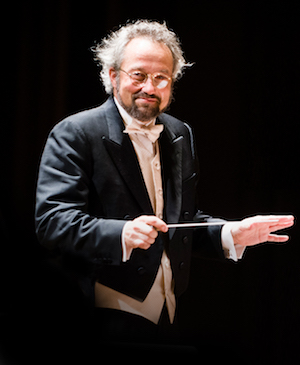
In early February, Seattle Symphony musicians organized a broadcast concert highlighting music from the seven nations named in the president’s original ban. At the end of January, Carlos Kalmar, conductor of the Oregon Symphony, put together a program of Tchaikovsky and Prokofiev — “a very personal concert,” he said, because it’s “a reflection of things that I have seen in my own life,” including his parents’ flight from persecution and his own immigration to the U.S. Kalmar referred to the “unifying power” of music when “words fail to bring people together.”
Matías Tarnopolsky, artistic and executive director of Cal Performances, told us in an email recently, “[we are] committed to welcoming artists and works from around the world. It’s in the DNA of our history, of our present, and of our future. Anything that makes it more difficult to produce performances that represent the widest breadth of artistic expression in the performing arts for our audiences and communities, must be challenged.”
In February, in an Op-Ed piece in The Los Angeles Times, the president and CEO of the Los Angeles Philharmonic, Deborah Borda, described early signs of trouble:
Already, artists have had their work and their lives upended by the administration’s actions. Kinan Azmeh, acclaimed Syrian clarinetist and member of Yo-Yo Ma’s Silk Road Ensemble, is uncertain as to whether he will be able to return to his Brooklyn home of 16 years when he concludes a concert tour in Beirut this week. Los Angeles-based concert promoter Shari Rezai, who specializes in contemporary Persian music and brings artists from Iran to the United States, has canceled six shows. Performers including London-based Kazakh violinist Aisha Orazbayeva and Berlin-based electronic musician Robert Henke have opted out of U.S. appearances in a show of solidarity with those trapped by the order.
More and more organizations are joining, if not a movement, certainly a growing resistance. Sharon Dolan, executive director of Freight & Salvage Coffeehouse in Berkeley, a nonprofit community arts organization, recently sent out a message urging people in the folk and roots music community to become politically active, to write their legislators, and to find out more about the issues on the Folk Alliance International website.
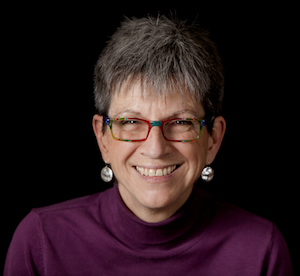
“We haven’t had to cancel anything,” said Dolan, “but even the idea that this could happen demands our attention. We have a long history of being in the forefront of social justice movements, and our mission has always been to protect and preserve this tradition.”
Dolan notes that the reaction to her message has drawn more support than pushback, but some people have questioned why her organization would mix music and politics. Others argue that immigration is a “safety issue” not a constitutional issue.
“To those people I would say I don’t believe that a travel ban makes us any safer and that really all it does is alienate people. We already have a strong vetting process.”
Dolan is one of the few arts executives willing to show her colors. We spoke to several people, and not just in the Bay Area, who would rather not take a public stand on immigration or the NEA. As one person told us, and not for attribution, immigration is the more volatile of the two issues and a matter often left by artistic directors to the business side of the house. Interestingly, the larger the arts organization, the more unwilling anyone is to comment at all.

